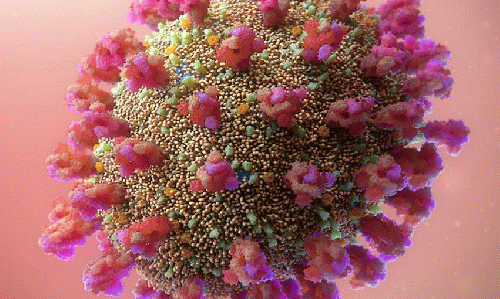The following is a summary of a Covid-19 update sponsored on July 23 by the Newswise science-news service, featuring three experts:
Perry Halkitis, a public-health psychologist and applied statistician at New Jersey's Rutgers University,
Eleanor Wilson, a medical doctor and infectious-disease specialist at the University of Maryland, and
David Souleles, Director of UC Irvine's Covid-19 response team, recently retired. Orange County Public Health Director
The focus of the update was the emergence and trajectory of the delta variant and what that implies for the US:
Here are some of the key points the experts made:
--The delta variant is a serious threat in the US and worldwide.
--As recently reported, the level of viremia--the viral load in the bloodstream--from a Covid-delta infection is 1,000 times higher than from previous versions of the virus. That's probably what makes it so infectious.
--According to Dr. Wilson, the infectiousness, or "R-nought" value, of the original version of Covid-19 was estimated to be between 1 and 3. Statistically that means that one infected person would pass the virus to one to three others. The beta version's R value was between 4 and 6. The delta variant is 8 or 9. The only virus known to be more easily transmitted is measles, with an R value of 13.
--Unfortunately, the current vaccines appear to offer less protection against delta than against earlier versions of the virus. However, even though they may not completely protect against catching the virus, they are still highly effective at preventing serious illness, hospitalization and death. As such, vaccines remain our most important and urgent line of defense. "If we want to get back to normal life, we need our vaccination rates to be much higher," Souleles says. "That's priority number one to get our lives closer to what they were in January of 2020."
--That doesn't just include the US. The billions of people worldwide who are still not vaccinated are not just at risk personally, but represent a huge reservoir of current and future Covid-19 cases and so a huge opportunity for the virus to continue to mutate and spin off even more dangerous variants. "It's a global problem," says Wilson. "We have to vaccinate everyone. If we give the virus fewer opportunities to replicate, we win."
--All of the experts were very concerned about the portion of the US population--roughly one half--that is not yet vaccinated. They emphasize the importance of recognizing that this is not a monolithic group of dedicated vaccine refusers. Instead, these are individuals with many different issues, including some with very real medical, scheduling or other practical issues, some with normal hesitancy, anxieties and fears, such as a fear of needles, some who lack information or have been exposed to partial or incorrect information, and, unfortunately, a substantial number of people with politicized resistance to the vaccine and other protective measures. "Half of the half--another 25 percent--are malleable," says Halkitis. "Focus on them first."
--The experts advocate both continued public education and persistent one-on-one outreach, aimed at recognizing and addressing each person's specific issues. "The media need to help people figure out what's real and what's not real, people who are being bombarded by misinformation," says Halkitis.
"It takes a lot of conversation, but you have to keep doing it," says Wilson. To which Souleles adds, "Not just one conversation, maybe three, four or five."
--However, when education and patient one-to-one persuasion don't work, stronger steps may need to be taken. "I'd take a "tough-guy-from-New-York" approach," says Halkitis. "If you live in a civil society and you want to navigate spaces like concerts, restaurants, jobs and schools, you need to be vaccinated. Macron did it in France. If you want your children to go to school, they have to be vaccinated."
(Note: You can view every article as one long page if you sign up as an Advocate Member, or higher).





